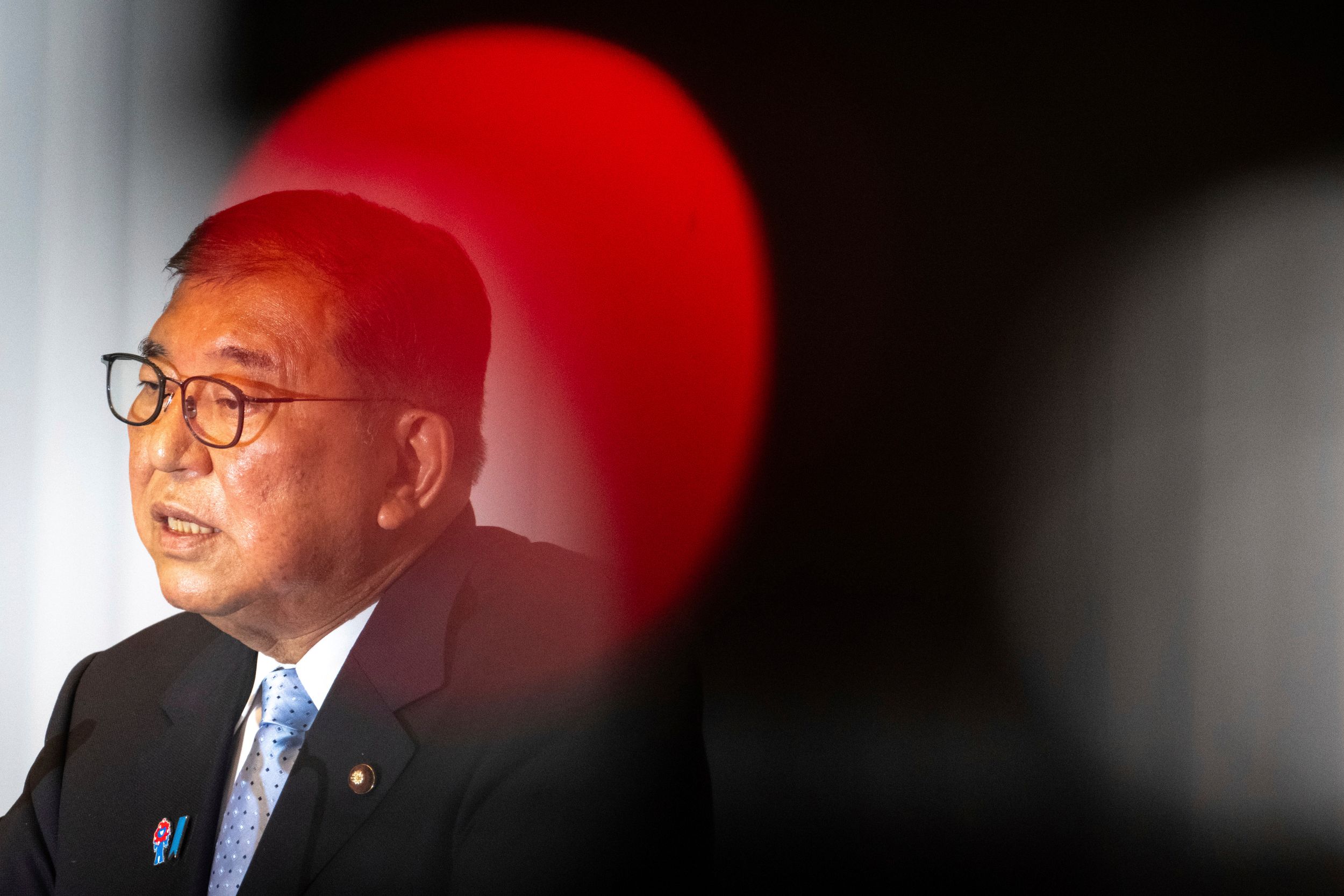
Embattled Japanese Prime Minister Shigeru Ishiba denied media reports that said he is set to announce his resignation soon following Sunday’s historic electoral setback.
There’s no truth to those reports, Ishiba said after he met with his predecessors and ruling party heavyweights Yoshihide Suga, Taro Aso and Fumio Kishida on Wednesday afternoon.
Ishiba said they didn’t discuss whether he will stay on or step down.
The group agreed to approach the Liberal Democratic Party’s current state with a strong sense of urgency and avoid a split within the party, according to Hiroshi Moriyama, the LDP’s Secretary-General who also attended the meeting.
Before Ishiba spoke the Yomiuri newspaper reported Ishiba has told those close to him he intends to announce his resignation as soon as this month, while other local media said that he’s set to make his declaration in August. The news came shortly after the US and Japan announced a deal to cut the US’s car and across-the-board levies on Japan to 15 percent.
READ MORE: Unstable political landscape seen in Japan amid election
The Yomiuri said Ishiba decided that he can now take responsibility over the upper house election result, because there was progress made on an issue of major concern.
The yen weakened to as much as 147.20 against the dollar following the initial reports regarding Ishiba’s intention to resign, though it pared some of those losses shortly after.
The Sankei newspaper said that Ishiba will be making a decision on whether he stays in late August given a series of commitments earlier in the month, and if he steps down a new LDP leader will be elected around September.
For that person to then be elected prime minister in parliament, the ruling coalition would need some level of support from opposition parties.
“What this means is that we’re sort of entering a period of speculation as to who’s going to be the next leader,” said William Chou, Deputy Director, Japan Chair at Hudson Institute. “Right now it’s — there’s just a lot of speculation.”
ALSO READ: Ishiba calls Trump's new tariff decision 'truly regrettable'
Ishiba and his ruling coalition lost its majority in the upper house election, meaning that the LDP is now ruling without a majority in either chamber for the first time since its founding in 1955. The prime minister has cited the trade talks as one of the reasons why he needs to stay on, but an agreement with the US would seemingly clear the way for him to step down.
Following the election loss, support for Ishiba’s administration has plunged with a major poll showing his approval rate slightly above 20 percent, a level that’s historically been considered dangerously low for an administration to continue.


